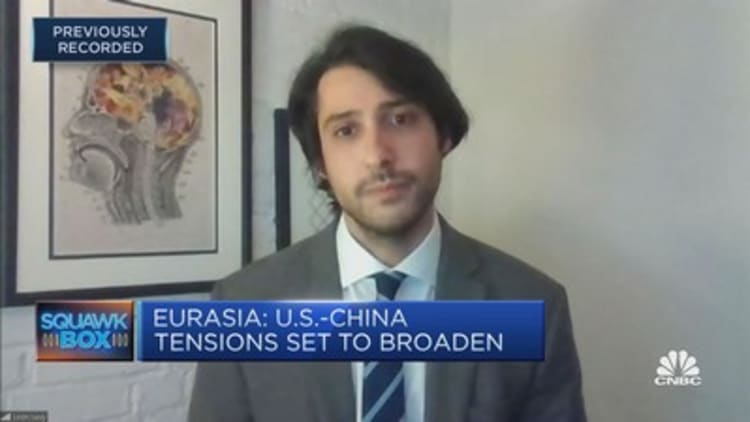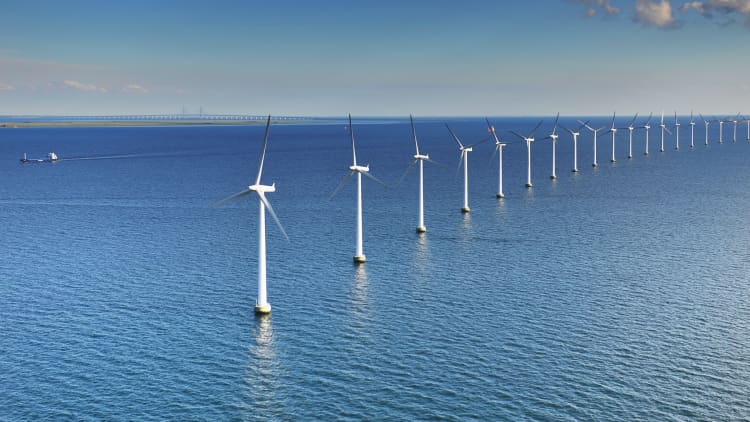
SINGAPORE — Competition between the U.S. and China could spill into new areas this year — further complicating a tense relationship that has threatened the global economy over the last few years, according to risk consultancy Eurasia Group.
Among the top ten risks for 2021 predicted by Eurasia Group is that U.S.-China tensions are broadening.
One potential new source of friction is in "green" technologies, said Leon Levy, a senior analyst in the firm's global macro practice.
That's especially so since President-elect Joe Biden — who will be sworn in on Jan. 20 — has listed tackling climate change as one of his priorities, Levy told CNBC's "Squawk Box Asia" on Tuesday.
"What we're likely to see is more competition in green energy between the U.S. and China. And that's just gonna open up a whole new front that we just haven't really seen in the last four years under Trump," he said.
China is currently a leader in the development of many clean energy and technologies — including batteries, solar and wind, Eurasia Group said in its annual "Top Risks" report published Monday. And Beijing has sought to score "public diplomacy points" and pull ahead of the U.S. by pledging to become carbon neutral by 2060, the report pointed out.
In contrast, the U.S. placed climate issues on the back burner under President Donald Trump, who pulled his country out of the Paris accord and has frequently dismissed concerns over climate change.
Biden, however, will be eager to catch up, the consultancy said.

The U.S. "will make major investments to re-shore portions of these clean energy supply chains back to the US, seek to shame Chinese coal investment abroad, and rally allies to pressure China on climate and clean energy issues," said the report.
"China, for its part, has grown accustomed to its climate soft power boom during the Trump years and will not take this offensive lightly," it added.
'A battle of diplomacy'
In addition to green technologies, Biden's preference for a multilateral front against China could add to tensions between the two countries, Eurasia Group said in its report.
Biden has said he would consult with traditional U.S. allies in Europe and Asia to develop "a coherent strategy" on China — a departure from Trump's unilateral pursuit of a tougher stance against Beijing.
But that strategy will in turn create "deeper fissures between Beijing and these US allies" and lead to "a battle of diplomacy" between the U.S. and China, said the consultancy.
US efforts to enlist allies ... and climate tech competition will interact with longstanding tensions to further complicate US-China relations.Eurasia Group
Overall, the U.S.-China rivalry — which worsened after Trump took office in 2017 — could be as intense as last year, even though the incoming Biden administration may offer both sides some breathing space, said Eurasia Group.
"US efforts to enlist allies, vaccine diplomacy, and climate tech competition will interact with longstanding tensions to further complicate US-China relations," it said.
"Disagreements over bilateral trade and technology, the treatment of the Uighurs, Hong Kong, Taiwan, and the South China Sea will fully carry over into this year ... all of which will sustain a significant chance of miscalculation and escalation during a crisis," the Eurasia said.


